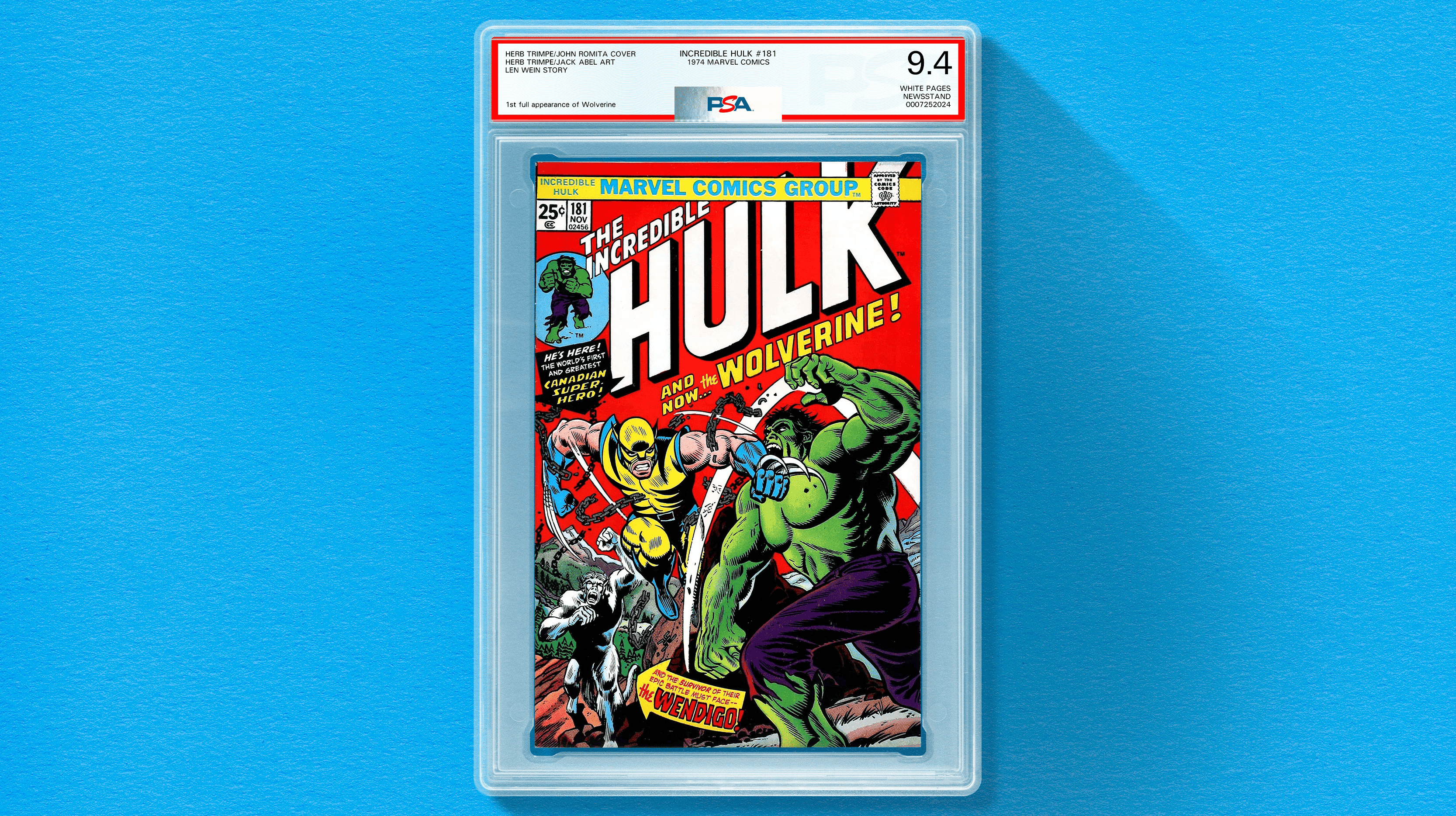PSA will begin grading comic books and magazines in 2025, the company announced Friday, expanding into an entirely new and mature market currently dominated by third-party authenticator CGC.
The addition of comic books and magazines to PSA and its parent company, Collectors, is the latest in a series of recent announcements, including the acquisition of eBay’s vault, the launch of grader notes for cards — a mainstay of comic book authentication — as well as a major update to its holders.
Comics and magazines will be graded on the traditional comic book decimal scale, most commonly seen on current CGC slabs, which debuted in 2000 and transformed the industry by introducing a modern and standardized grading system.
PSA’s decision to utilize the universally accepted system, which includes decimal points — a degree of specificity PSA has never offered in card grading — comes from the complicated nature of comics compared to cards.
Unlike PSA’s current card census, the comic book division will launch without a population report. Elizabeth Gruene, general manager of PSA Pop Culture, told cllct it will require some time “post-launch” before collectors will be able to use it.
CGC has a full population report and serial number look-up page, one of the most important resources used by comic collectors to determine value and rarity of certain books.
Of the four main card grading companies (PSA, SGC, CGC (cards) and BGS), 1.53 million cards were graded in June, with 1.16 million placed in PSA slabs, according to GemRate. In addition to dominating the grading market, PSA’s best asset might be its slab, which routinely outsells graded cards from other companies.
PSA is used to being the leader in card grading, but soon the company will undoubtedly find itself jockeying for market share in comics.
CGC, the comic book grading division of Certified Collectibles Group, has authenticated 10 million comics since its founding.
“Since revolutionizing comic book collecting in 2000, CGC has set the standard with the most accurate and consistent grading, the most protective holders, our now-iconic labels and the fastest turnaround times," President of Certified Collectibles Group Max Spiegel told cllct. "We will continue to be the hobby's first choice by listening to the community, upgrading our services and adding value more than any other grading company."
Much like PSA in cards, CGC owns the category with an iron fist and also matches the PSA slab premium in comics, with essentially every single top sale in recent years coming from a CGC-graded comic.
“We will need to show comic collectors that our grading is rigorous and consistent, that we can be trusted with their most precious items,” Gruene told cllct, outlining the necessary steps for PSA to successfully enter the market.
PSA’s comic and magazine slabs appear in the same style as the traditional PSA card slabs, seemingly an effort to leverage its trust as a reliable grader in cards to win over comic and magazine collectors.
Gruene also emphasized the need for excellent customer service, as well as the vital role of the slab itself.
“We need to deliver collectors a finished product that looks beautiful and is the most protected for future safekeeping,” Gruene said.
The new holder design was no small undertaking as it is not as simple as just producing larger card slabs. Instead, PSA says new holder designs are always challenging due to the unique properties of the collectible stored within..
PSA had never produced a comic holder, Gruene said, explaining the process necessary to bring the new slabs to market.
Starting from zero, PSA had to go through multiple trials and learning experiences during the development process.
“Comics are especially challenging due to the various sizes and thicknesses throughout the years, in addition to the fact that the books are quite heavy and constructed of many sheets stapled together compared to, say, a baseball card, which is quite light and made of a single layer,” Gruene said.
The final slabs were produced with industry experts and early collector feedback.
PSA has grown its comic and magazine grading division “significantly” though the exact size of the team was not disclosed. In addition to recent hires with backgrounds in the category, PSA also has started training experts from other categories within the company to be able to authenticate and grade comics.
PSA will bundle autograph authentication services with regular submissions, surely tapping into its PSA/DNA authentication to certify. This comes on the heels of CGC’s acquisition of James Spence Authentication in May, allowing CGC to offer combined services for comic books and giving collectors the ability to submit autographed comics for authentication by JSA and encapsulation by CGC.
Despite the uphill climb, PSA plans to differentiate itself in the market in a number of ways, according to Gruene, who described how PSA can “address pain points that currently exist in the grading space.”
One pain point Gruene: Counterfeit protection. Considering CGC dealt with a high-profile incident of holder tampering early this year, affecting 350 books, this is a clear effort to attack the incumbent where it showed vulnerability.
Both companies run substantial operations, with Blackstone acquiring a majority stake in Certified Collectibles Group in a 2021 transaction that valued the company at $500 million. When Nat Turner acquired PSA’s parent company the same year, the valuation was more than $850 million.
Submission prices will not be announced until launch, however, they will be “competitive with current offerings.”
PSA will join CGC by offering pre-grading pressing services, meant to remove imperfections in magazines to achieve higher grades.
It will take time to see how much of a threat PSA poses to the comic book grading market and whether or not its brand is strong enough to grow the comic collecting community.
“We believe this will grow the overall market,” Gruene said. “There is so much room for expansion in the comic book and magazine space within the U.S. and globally.”
Will Stern is a reporter and editor for cllct.

